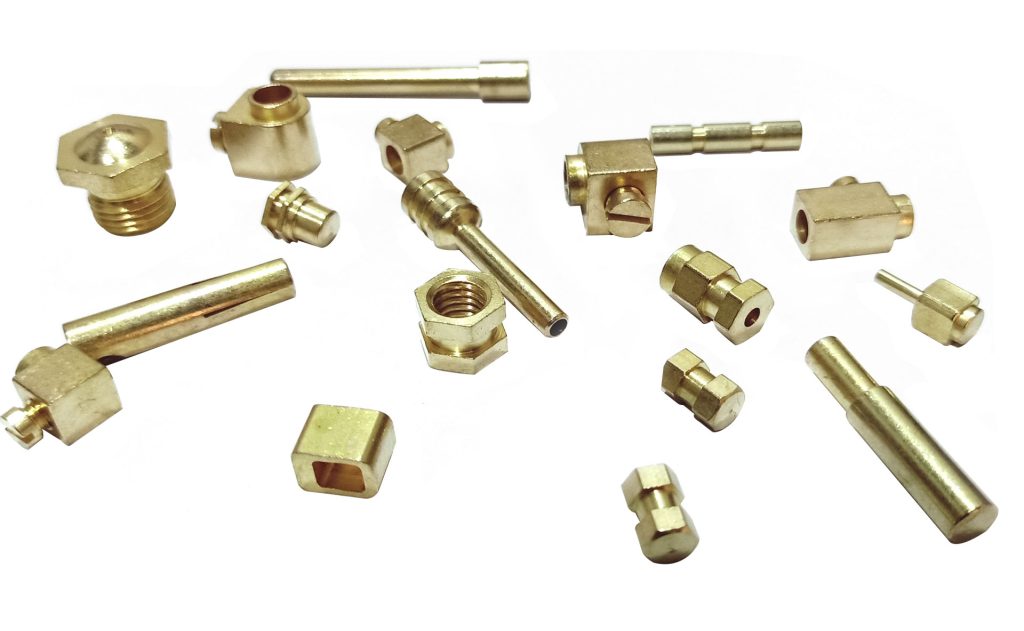Brass is an alloy of copper and zinc that has been historically significant and will continue to do so in the future due to its tenacity and malleability. The production of the first brass, which was known as calamine brass and goes back to the Neolithic period, most likely included the reduction of combinations of zinc ores and copper ores. The word bronze, which is an alloy of copper and tin, is often referred to as brass in historical writings such as the Bible.
“Brass” refers to a group of copper-zinc alloys in their many forms. There is a wide variety of copper zinc alloys, with the zinc concentration ranging from 15 percent, which is referred to as red brass, to 40 percent, which is referred to as yellow brass. Copper alloys that have a zinc concentration that is less than 15 percent are classified as a form of bronze, despite the fact that they are a type of brass. Brass neutral link, earthing block, brass industrial plug pins, dc tape clamp, brass sections profiles, brass electrical anchor, test bond test clamp, brass electrical sockets, brass electrical terminals, brass switch terminals, brass inserts, and more are some of the electric brass parts that many companies offer.
Brass may be alloying elements with zinc in a variety of amounts, which results in a material with variable structural, thermal, and chemical characteristics. Brass can also be alloyed with copper. The material’s higher strength and ductility may be attributed to the increased levels of zinc present in it. Brasses with a copper concentration that is higher than 63 percent are by far the most flexible of any copper alloy, and they are molded by complicated cold forming procedures. The malleability of brass is much greater than that of bronze or zinc.
The amount of brass present in brass determines how malleable it is; brasses that contain more than 45 percent zinc cannot be worked, regardless of whether they are hot or cold.
Numerous manufacturers offer the widest range of electric brass parts and other brass components, all of which are made from high-quality material and adhere to international quality standards. These electrical brass components are among the finest and most precisely formed brass electrical components available on the market today. They provide the most advanced manufacturing technology based solution for any kind of electrical components that is acceptable for your company’s requirements in the industrial sector. Brass Electrical Components are offered in a wide variety of thread shapes, diameters, lengths, tolerances, and surfaces.
Brass Electric For Other Parts
Electrical resistivity is a basic feature of a substance that measures how strongly it either resists or conducts the passage of electric current. It’s opposite, electrical conductivity, is also an important attribute of a material. A substance has a high conductivity if it has a low resistance and it permits electric current to flow easily through it. The resistivity sign is traditionally represented by the Greek letter (rho). It is important to keep in mind that electrical resistivity and electrical resistance are not the same thing. Ohms is the unit of measurement used for electrical resistance. In contrast to resistivity, which is a property of the material, resistance is a quality of the thing itself.
Here is where brass may display its full potential. You won’t have any trouble accessorizing practically any space in your house with brass accent items. You may include things like candlestick holders, mirror frames made of brass, and other such trinkets. Brass faucets, drawer handles, and cabinet pulls are all options that you have for personalizing your kitchen. However, if you want your house to have a contemporary appearance, you should be sure to mix things up by include items made of other metals such as chrome, silver, or pewter. When it comes to accessories made of brass, try not to go crazy with the amount you buy. Brass should be cleaned and polished on a regular basis to preserve its luster and keep it looking its best.



